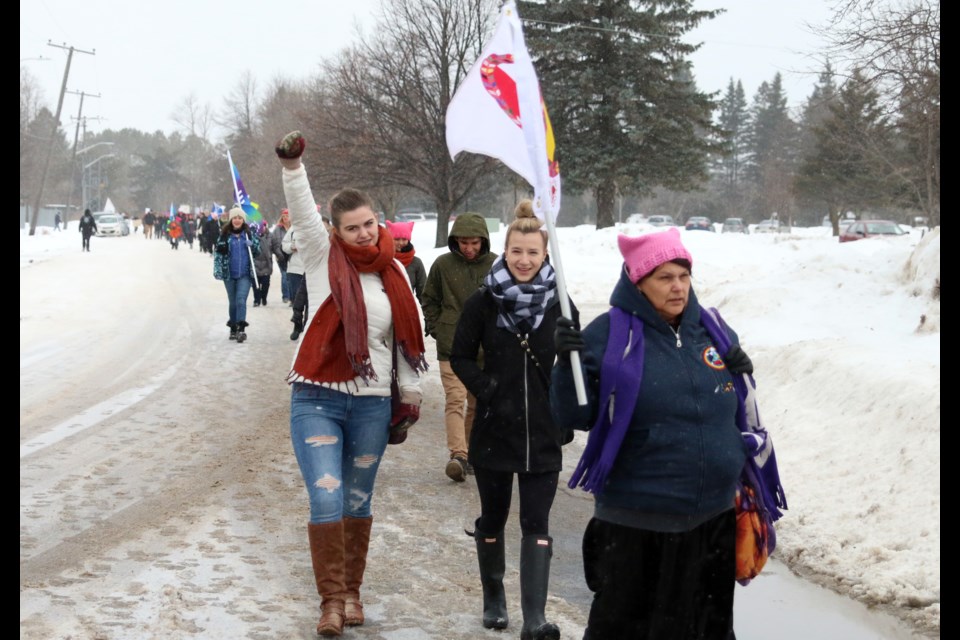THUNDER BAY - Jacqueline Dyck has been studying feminism and politics at university for the past two years. And while the lessons she has learned have been invaluable, sometimes creating real change involves taking to the streets and ensuring the voices of all women are heard.
“Today is an incredible step in the feminist movement and I am honoured to be a part of it,” Dyck said. “We are marching throughout Thunder Bay to raise awareness for women’s issues and help spread the feminist movement.”
Dyck was just one of countless women who participated in more than 600 Women’s Marches in cities across the world on Saturday. Women and men were encouraged to look back and march forward in an effort to bring more awareness women’s issues and encourage more women to enter politics.
“I think women’s rights are grown through social actions and also through political actions,” Dyck said. “But you can’t have political actions without pressure from society. Marches like these that are happening all over the planet today are really important to show the rest of the world that women are here, we want our rights, and we want them right now.”
The marches mark the anniversary of one of the largest demonstrations in the history of the United States in protest of President Donald Trump’s inauguration last year.
This year the marches are not focusing specifically on protesting Trump, but rather conitnuing to fight for the rights of women around the world and promoting more women in politics.
“It’s important to hold these marches because we have voices and we want to be heard,” said March organized, Nancy Johnson. “We may not always be the persons to speak on our own behalf, but there are issues where women can come up in the community and speak for us.”
In Thunder Bay, more than 100 people marched from the Ka-Na-Chi-Hih Centre on Dease Street, down Balmoral Street to the McIntyre River Bridge, and back. Many who took to the streets held signs for Missing and Murdered Indigenous Women, calling for pay equity, and ending violence against women.
“I’ve been walking and marching and attending vigils for over a decade in Thunder Bay and Winnipeg for the missing and murdered Indigenous women and girls,” said Ann McGuire, who was marching on Saturday. “I think we need strong women voices in our community to stand up for our rights.”
Johnson and McGuire said Thunder Bay still faces a number of challenges when it comes to the rights of women, particularly Indigenous women.
“The issues women face every day in this community is very heart breaking at times, especially if you’re an Aboriginal women,” Johnson said. “They don’t feel safe to walk the streets and we can’t have that.”
“A lot of people are suffering in our community and especially here in Thunder Bay,” McGuire added. “Thunder Bay is a hub for a lot of Northern Ontario Indigenous people and I think it’s time Thunder Bay stand up to the plate and with local help we can get more done.”
For Dyck, who is majoring in political science and women’s studies at Lakehead University, the Women’s March, whether it is taking place in New York, London, or Thunder Bay, is about standing in solidarity with the community to ensure the rights of women continue to move forward and that no voices are silenced.
“I think women’s rights need to go so much further than where they are at today,” she said. “If we build a couple more activists from this march alone, I think that is a success.”
